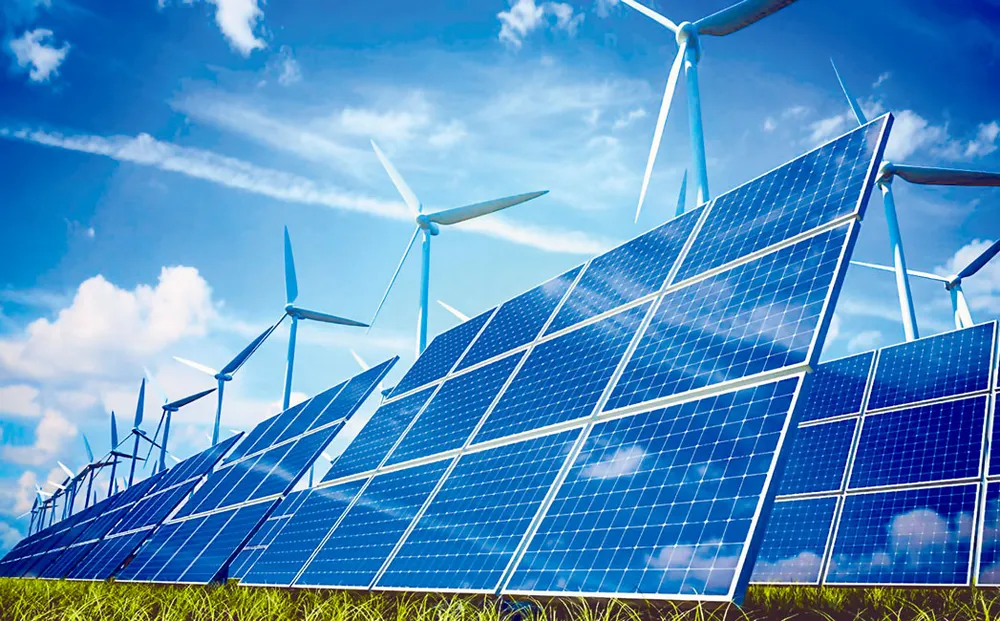
JOURNALIST: - Sir, how do you assess the prospects for RE development in Vietnam? In your opinion, which areas of investment are Korean businesses interested in developing in Vietnam in the near future?
Mr. HONG SUN: - Vietnam is a country with great potential for RE development in coming years. The exploitation of renewable energy sources is very important in terms of economy, society, energy security and sustainable development. Vietnam has a geographical location, a long coastline, a unique tropical monsoon climate and wide agricultural economy, with abundant and diverse renewable energy sources, which can be exploited for energy production such as hydroelectricity, wind power, solar power, biomass, geothermal, and biofuel.
Korean businesses are now planning to invest in developing projects for storage battery production for RE in Vietnam. Korean enterprises highly appreciate the market prospects and are fully capable of carrying out such projects. Vietnam has been assessed as having good solar energy resources and this source of clean energy can contribute a great deal towards national energy requirements.
Currently, the Electricity Generation Corporation 3 (EVN) is actively conducting research and development of solar power projects in Ninh Thuan and Binh Thuan Provinces on hydropower reservoirs in the Central Highland region to contribute in part to clean energy, and reduce environmental impact from non-renewable fuel power projects. The first solar cell factory to be invested in Vietnam and built in Duc Hoa district in Long An Province produces solar panels with capacity of 80-165 Wp of electricity with an efficiency of 16%, at 5MWp per year.
There is also Trina Solar Vietnam Factory, with a total design output of 1GW. The investor of this project is the Trina Solar Vietnam Science & Technology Company, with a total investment of around USD 100 mn, a factory area of 42,000 square meters, 14 modern lines, producing many types of single crystal batteries and polycrystalline, and exporting throughout the world. In Bac Giang Province a chain of manufacturing and assembling of solar panels with eight licensed projects is developing, including a solar battery factory of JA Solar Vietnam Company Limited with a total investment of about USD 1 bn, and an 88 ha workshop in Viet Yen Industrial Park.
- Sir, compared to conventional storage batteries, what is the advantage of Korean storage battery manufacturing technology?
- Technology for manufacturing storage batteries from Korea has many outstanding points. The electricity from this fuel cell is used for the local power grid and the heat generated by the fuel cell can be used to treat waste water in nearby areas. Fuel cells combine hydrogen and oxygen in the air to generate electricity and heat through chemical reactions. With the advantage of high performance and stability, low emission, no noise, no environmental pollution, the fuel cell is rated as a clean, efficient and reliable energy source.
A fuel cell is a form of power source that converts the chemical energy of fuel into electricity. The fuel cell can also act as a heat generator for powering light machinery. It is also widely used in transport vehicles such as cars and airplanes, so the fuel cell is a new type of generator, and fast becoming a new source of energy to replace hydropower in Asia in the future.
- In your opinion, what policies does Vietnam need to attract foreign businesses to invest in renewable energy?
- Renewable energy development in Vietnam has undergone a process of changes over nearly three decades with many ups and downs. These changes depended on the State, ministries and branches of research, construction, project implementation and financial support for RE development. It is noticeable when there is interest and direction of the State through unified policies, programs and appropriate funding of a budget, as well as international assistance in technology and finance, we can achieve certain results.
Currently, the Government has issued incentive policies for investors such as priority for credit, corporate income tax exemption and reduction, low land rent, and use of electricity trading contracts. However, the development of RE resources in recent years has continued to face many inadequacies and challenges.
Particularly, investment costs are still high, number of operating hours are low, the grid infrastructure of some potential areas is not ready to release capacity, requires larger land areas, especially for solar power projects, and is all difficult to control. Therefore, some solutions need to be found first to lessen such hindrances.
- Thank you very much.




















